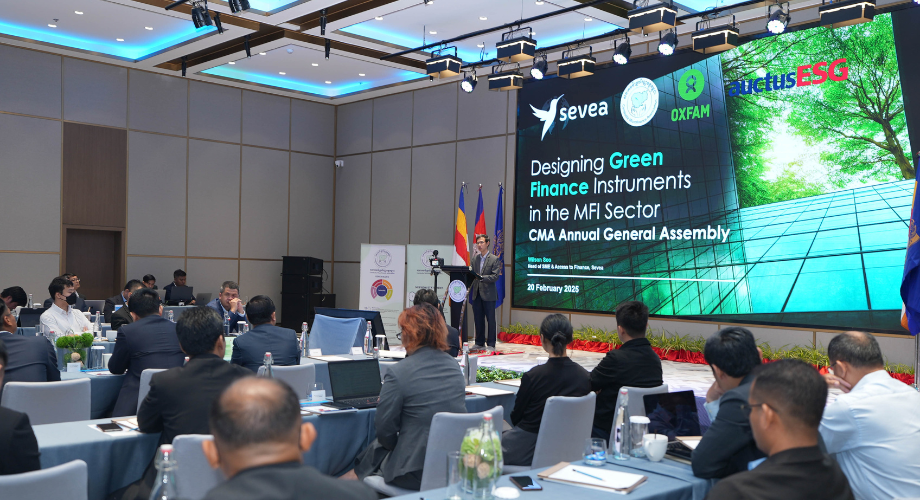


In the first three months of this year, the Cambodia Microfinance Association (CMA) hosted a workshop to disseminate the findings of a study on Green Finance Instrument Development to over 100 leaders from its member Banking and Financial Institutions (BFIs) and stakeholders.
The research study aimed to inform the design of green finance instruments (GFIs) specifically tailored for the microfinance sector, with a particular focus on the Agriculture, Renewable Energy (RE), Electric Vehicles (EV), and Energy Efficiency (EE) sectors. These sectors align with Cambodia's Sustainable Development Goals and national climate adaptation and mitigation efforts.
During the dissemination workshop, four comprehensive reports were presented to all participants and stakeholders: Global Green Finance Landscape, International Benchmarking, Green Finance Landscape in the Cambodian Context, and Final Report and Recommendations. The workshop was conducted under the Climate Resilience For All (CREFA) project, implemented by CMA in partnership with Oxfam Cambodia and with funding support from the Irish Embassy. CREFA aims to engage private sector actors in implementing and promoting public-private sector solutions for climate change adaptation and mitigation.

The CREFA project was designed in 2024 to enhance the resilience of Cambodian systems and individuals by transforming the risks of climate change into opportunities for sustainable development through effective and efficient adaptation and mitigation responses. This includes the introduction of green loan products, which are expected to help BFIs improve client retention and loan quality, ensuring their business continuity and a sustained financial sector capable of continuing to provide financial inclusion and responsible financial services.
Cambodia faces significant vulnerability to the effects of climate change. Despite being one of the countries with the least contribution to global climate change, it ranks among the most susceptible nations to its impacts. According to the Global Climate Risk Index, Cambodia is ranked as the 14th most vulnerable out of 181 countries. The primary sector at risk is agriculture, which holds a greater share of the country's GDP and employment compared to similar nations.
Cambodia's agricultural practices largely rely on subsistence farming with limited access to irrigation. The small scale of operations and insufficient capital investment make it challenging for farmers to adapt to climate change. In the context of agriculture and rural business lending, also climate change poses risks to Banks and Financial Institutions such as poor infrastructure, underdeveloped value chains, weak legislative frameworks, inadequate food safety measures, and insufficient production capacity especially the repayment capacity of the client who effected from Climate Change.